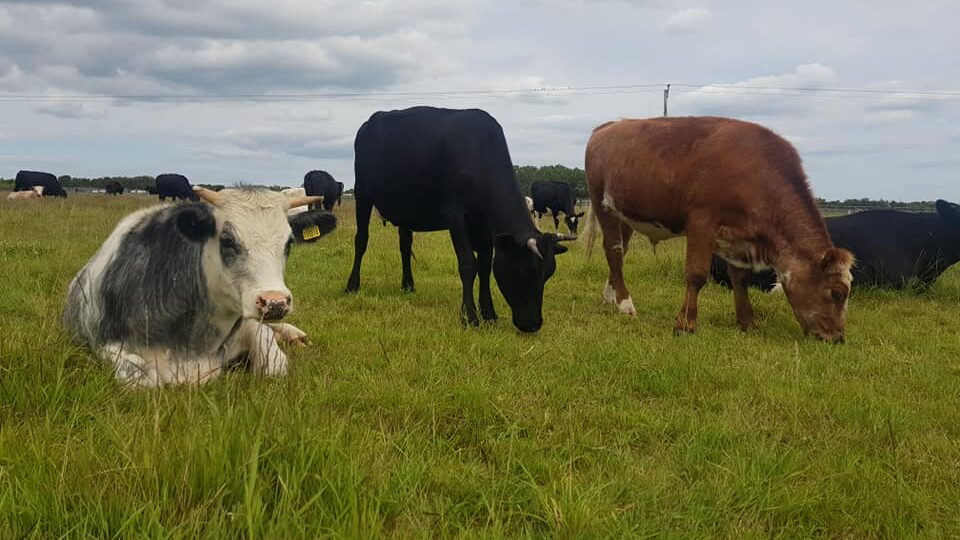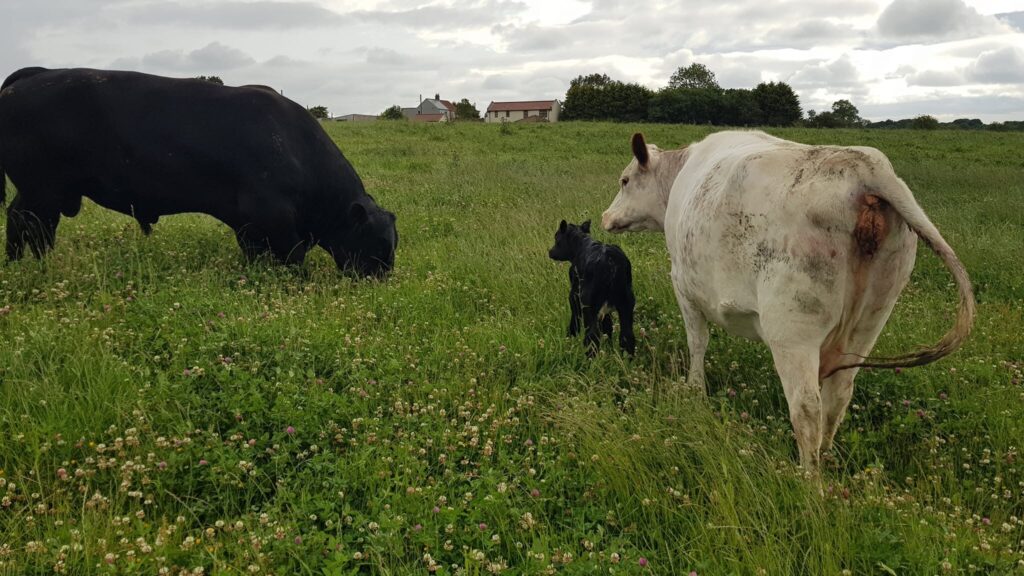Grass-fed cows are a type of cattle that are raised on a diet consisting primarily of grass, as opposed to grain or corn. This type of farming is becoming increasingly popular as consumers look for healthier and more sustainable options when it comes to meat production.
One of the main benefits of grass-fed cows is that they are generally considered to be healthier than grain-fed cows. Grass-fed beef is lower in saturated fats and higher in beneficial nutrients like omega-3 fatty acids, conjugated linoleic acid (CLA), and vitamins E and K. Additionally, grass-fed cows have been shown to have a more favorable ratio of omega-3 to omega-6 fatty acids, which is important for maintaining a healthy diet.
Another benefit of grass-fed cows is that they are better for the environment. Cows that are fed a diet of grain or corn require large amounts of water, fertilizer, and pesticides to grow the crops, which can have a negative impact on the environment. In contrast, grass-fed cows can be raised on pastureland that is not suitable for other crops, and they do not require the use of chemical fertilizers or pesticides. Additionally, grass-fed cows have been shown to have a smaller carbon footprint than grain-fed cows, as they produce less methane, a potent greenhouse gas.
Grass-fed cows are also beneficial for farmers, as they can be raised on small family farms and do not require the same level of inputs (feed, water, medical treatment) as grain-fed cows. This makes grass-fed beef production a more sustainable and profitable option for small farmers.
In addition to the health and environmental benefits, many people find that grass-fed beef has a better taste and texture than grain-fed beef. This is because the meat tends to be leaner and has a more complex flavor profile.
However, it should be noted that not all grass-fed beef is created equal. To ensure that you are getting a high-quality product, it is important to look for grass-fed beef that comes from cows that have been raised on a diet of 100% grass and forage, and has been certified by a reputable organization.
Overall, grass-fed cows offer a number of benefits over grain-fed cows, including better health outcomes for consumers, a more sustainable approach to farming, and a more flavourful and high-quality product. As more and more people become aware of these benefits, the demand for grass-fed beef is likely to continue to grow.

Another important consideration when it comes to grass-fed cows is the way that they are raised. Grass-fed cows should be raised on pastureland and be able to graze freely, rather than being confined to feedlots. This not only ensures that the cows are getting a diet that is consistent with their natural physiology but also allows for a more humane and ethical approach to farming.
Pasture-raised, grass-fed cows typically have access to a more diverse diet, which can include a variety of grasses, clovers, and other plants. This can lead to meat that has a more complex flavor and a higher nutrient content. Additionally, pasture-raised cows are exposed to more natural sunlight, which can have a positive impact on their overall health and well-being.
However, it’s important to note that not all grass-fed beef comes from pasture-raised cows. Some farms may use the label “grass-fed” but still confine their cows to feedlots and provide them with a diet that is mostly composed of silage (fermented grass) and hay. This is why it is important to look for certifications from reputable organizations that verify the animal welfare and feeding practices of the farm.
Grass-fed beef is also considered more expensive than grain-fed beef. This is due to the fact that grass-fed cows take longer to reach maturity and require more land to graze. Additionally, grass-fed beef typically comes from smaller farms that may not have the economies of scale that larger grain-fed operations have.
In conclusion, grass-fed cows offer a number of benefits over grain-fed cows, including better health outcomes for consumers, a more sustainable approach to farming, and a more flavourful and high-quality product. However, it is important to look for certifications and ensure that the cows were raised on pastureland and had a diverse diet to ensure that you are getting the best quality grass-fed beef. While it may be more expensive, many people find that the benefits are worth the extra cost.

